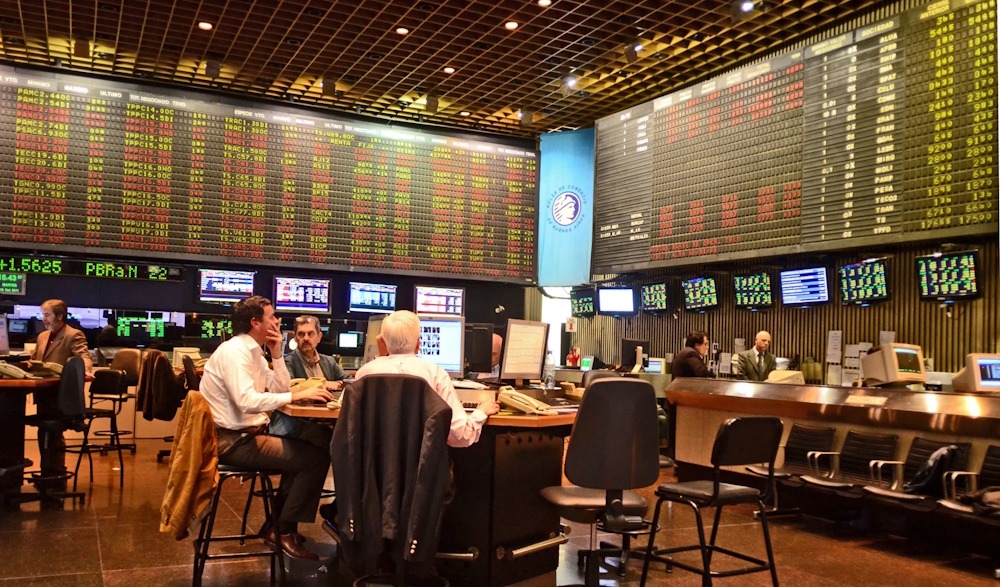On Monday, markets exhibited a euphoric response to the mid-term election results in Argentina, as evidenced by the strengthening of the peso, bonds, and stocks. While certain analysts anticipate an increase in international investment, others contend that the government ought to pursue additional reforms to stabilize the economy. On Sunday, President Javier Milei’s La Libertad Avanza secured the highest percentage of votes in Argentina’s 2025 midterm elections, garnering nearly 41% of the total, marking a significant triumph for the administration. The percentage indicates that LLA will easily exceed the one-third threshold of Lower House seats required to uphold presidential vetoes. Following a prolonged period of tension, the exchange rates between the peso and the dollar, a prominent gauge of Argentina’s economic vitality, experienced a decline of as much as 7%. The official wholesaler rate decreased by 3.8% to AR$1,435, the informal “blue” rate declined by 4% to AR$1,465, while the MEP and blue chip swap financial rates each fell by 7% to AR$1,440.8 and AR$1,459.5, respectively. In the weeks leading up to the election, the selloff of the peso became a significant concern, prompting direct intervention by the US Treasury in the foreign exchange market.
Diego Martinez Burzaco remarked in a statement that Monday marked “a historic day for Argentine stocks, with gains of up to 48%.” He stated “Banks and energy experienced consistent increases throughout the day, driving a change in expectations,” noting that hard dollar sovereign bonds also performed robustly, with gains reaching as high as 24.2% in dollars. The EMBI has fallen to 652 basis points, marking the lowest point since June 2, according to reports. “The unexpected election result, along with a conciliatory and consensus-seeking speech by the President, has heightened expectations among economic agents for increased medium-term predictability, including structural reforms, beyond merely alleviating short-term tensions,” Martínez Burzaco stated.
A report released prior to the opening of markets stated “It is such a shocking result that it completely changes 100% of the political (and, therefore, economic) analyses made in the last two months,” noting that the election indicates that the population “seems to show that when there are chances of a resurgence of Kirchnerism, it changes its behavior to curb that possibility.” Pablo Repetto indicated that the government ought to “probably send stronger signals in this week’s bond auction, trying to find lower positive real rates.” However, he exercised caution regarding the use of the term “party.” “When comparing the market conditions of last week to those of today, it’s quite a celebration,” he stated. “Regarding the current trajectory of the year, it can be characterized as a recovery.” He noted that there exists potential for enhancement provided that the government executes its actions “much better than they have so far,” which would entail “refining monetary and exchange rate policy to reduce volatility, particularly in interest rates, ensuring that structural reforms are adopted through consensus, granting the exchange market greater autonomy, and enabling the Central Bank to acquire reserves.”
Market sources indicated that the results could attract additional investments into the country. Mariano Mayer remarked that while certain investors expressed satisfaction with the progress made thus far and the Large Investment Incentive Regime, others are holding off on making definitive decisions until after the election results are announced. Mayer informed that investors are pushing for tax and labor reforms that may find favor with the new Congress. “Several investors are suggesting that the election result represents a milestone or a significant factor,” Mayer stated. Investors with a medium to long-term horizon seek “legal certainty, macroeconomic stability, transparency, and lifting exchange restrictions,” he stated, adding that “they are enthusiastic, exploring opportunities, consulting, but to finalize them, as with any long investment process, they were waiting for some further validation.” He noted that the primary sectors in Argentina that are drawing, or are likely to draw, substantial investment include biotechnology, energy, mining, and agroindustry, among others.

